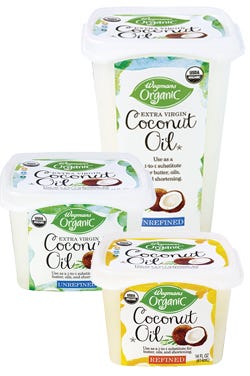5 ways retailers are snapping out of the stagnant-sales malaise5 ways retailers are snapping out of the stagnant-sales malaise
At a time when overall sales in traditional supermarkets remain unchanged, Americans are deeming differentiated products worth the investment.
August 4, 2015
At a time when overall sales in traditional supermarkets remain unchanged, Americans are deeming differentiated products worth the investment.
In an effort to enhance the exclusivity of their product sets, retailers are trimming their investments in national brands, noted Jim Hertel, managing partner at Willard Bishop, Barrington, Ill., and refocusing their efforts on:
1. Regional products
“They’re looking to identify strong regional players and especially those that are not in strong distribution in their competitors and they have an opportunity to sort of stand out that way,” said Hertel.
H-E-B is doing this with its Primo Picks Quest for Texas Best contest, whereby 200 submissions from around Texas were judged by H-E-B for taste, flavor, customer appeal, value, uniqueness, market potential and differentiation from products already available at H-E-B. Twenty-five finalists including Hot Dang Grain Burgers, Mis En Place's Sweet and Sassy Pickles and Gilbert Pecan Company's Pecan Honey will compete for space on H-E-B's shelf.
2. Natural and organics
Store brand organics are another differentiator at H-E-B where kid-friendly portions and lunchbox options make back-to-school shopping a no-brainer.
3. Sophisticated private brands

"Historically we've thought about private label for the regional operators as national-brand equivalent at 20% or 25% less than the national brand and it's got the banner on it and off we go, and it's kind of imitative as opposed to innovative. But now we’re now seeing even regional operators who are seeing opportunities in gluten free or other better-for-you kinds of products, they’re not seeing them in the national brands and they’re innovating themselves in bringing those brands to market," said Hertel.
Wegmans merchandises Organic Extra Virgin Coconut Oil, made by pureeing fresh coconut meat and cold pressing it, according to a Fresh Stories blog post.
You can use it as a 1-1 substitute for butter, oils and shortening. It tastes like coconut (surprise!) so it can add a nice flavor note and in the case of kale, it tones down the stronger, sometimes even bitter, taste of the popular green. It would work well in a stir fry. The label mentions using it as a natural moisturizer for skin and hair, but I confess I have not tried that. People cooking with it really like it, and often mention how good it is on popcorn. It does not need refrigeration.
4. Maximized margins
Dorothy Lane Market is trading shoppers up to cold pressed coffee, which according to reports, carries a higher profit margin than iced coffee, since it requires more coffee beans.
5. Experiential retail
Whole Foods Market's Houston store will soon begin distributing draft beer brewed on-site to Whole Foods stores throughout the state. But the store is already facilitating one-of-a-kind experiences with a keg equipped bicycle that delivers beer to shoppers throughout the store and classes that combine yoga and beer.
About the Author
You May Also Like




